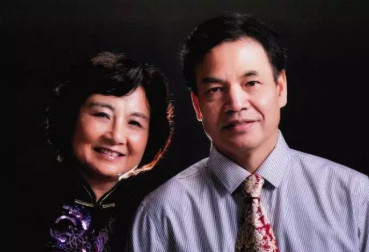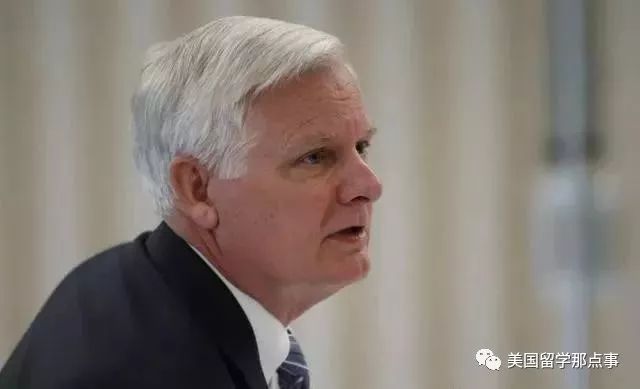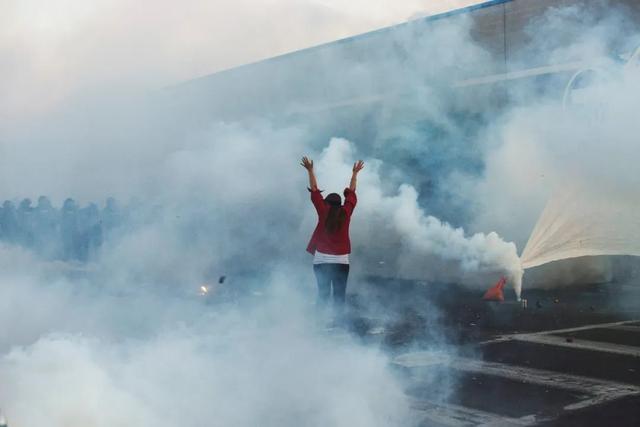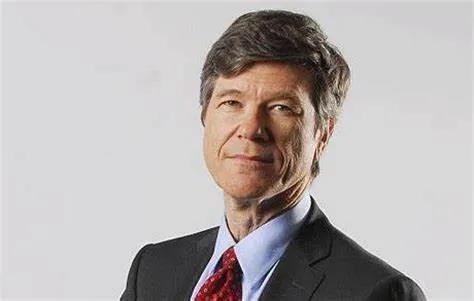Franklin Delano Roosevelt (January 30, 1882 – April 12, 1945) was the 32nd President of the United States and a central figure in world events during the mid-20th century, leading the United States during a time of worldwide economic crisis and world war. The only American president elected to more than two terms (he was elected to four but only served three full terms, dying in his fourth term), he was often referred to by his initials, FDR. Roosevelt won his first of four presidential elections in 1932, while the United States was in the depths of the Great Depression. FDR"s combination of optimism and economic activism is often credited with keeping the country"s economic crisis from developing into a political crisis. He led the United States through most of World War II, and died in office of a cerebral hemorrhage shortly before the war ended.
In his first term (1933–37) FDR launched the New Deal, a very large, complex interlocking set of programs designed to produce relief (especially government jobs for the unemployed), recovery (of the economy), and reform (by which he meant regulation of Wall Street, banks and transportation). The Conservative Coalition that formed in 1937 prevented his packing the Supreme Court or passing much new legislation; it abolished most of the relief programs when unemployment practically ended during World War II. Most of the regulations on business were ended about 1975-85, except for the regulation of Wall Street by the Securities and Exchange Commission, which still exists. The major surviving General Welfare clause program is Social Security (United States), which Congress passed in 1935.
As World War II loomed after 1938, with the Japanese invasion of China and the aggressions of Nazi Germany, FDR gave strong diplomatic and financial support to China and Britain, while remaining officially neutral. His goal was to make America the "Arsenal of Democracy"--supplying the munitions while others did the fighting. In March 1941, Roosevelt, with Congressional approval, provided Lend-Lease aid to the countries fighting against Nazi Germany, with Great Britain. He secured a near-unanimous declaration of war against Japan after the Japanese attack on Pearl Harbor on December 7, 1941, calling it a "date that will live in infamy." He supervised the mobilization of the US economy to support the Allied war effort, taking criticism for fumbles early on, but saw unemployment evaporate and the industrial economy soar to heights no one ever expected.Roosevelt dominated the American political scene, not only during the twelve years of his presidency, but for decades afterward. He orchestrated the realignment of voters that created the Fifth Party System. FDR"s New Deal Coalition united together labor unions, big city machines, white ethnics, welfare recipients, African Americans and rural white Southerners. Roosevelt"s diplomatic impact also resonated on the world stage long after his death, with the United Nations and Bretton Woods as examples of his administration"s wide-ranging impact. Roosevelt is consistently rated by scholars as one of the greatest U.S. Presidents.
State Senator
In the State election of 1910, Roosevelt ran for the New York State Senate from the district around Hyde Park in Dutchess County, which had not elected a Democrat since 1884. He entered the Roosevelt name, with its associated wealth, prestige, and influence in the Hudson Valley, and the Democratic landslide that year carried him to the state capital Albany. Roosevelt took his seat on January 1, 1911. He became the leader of a group of "Insurgents" who opposed the Tammany machine which dominated the state Democratic Party. The U.S. Senate election which began with the Democratic caucus on January 16, 1911, was deadlocked by the struggle of the two factions for 74 days. On March 31, James A. O"Gorman was elected, and Roosevelt had achieved his goal: to upset the Tammany machine by blocking their choice William F. Sheehan. Roosevelt soon became a popular figure among New York Democrats. He was re-elected for a second term in the State election of 1912, but resigned from the New York State Senate on March 17, 1913, to accept his appointment as Assistant U.S. Secretary of the Navy.
Assistant Secretary of the Navy
FDR as Assistant Secretary for the Navy.Franklin D. Roosevelt was appointed Assistant Secretary of the Navy by Woodrow Wilson in 1913. He served under Secretary of the Navy Josephus Daniels. In 1914, he was defeated in the Democratic primary election for the United States Senate by Tammany Hall-backed James W. Gerard. As assistant secretary, Roosevelt worked to expand the Navy and founded the United States Navy Reserve. Wilson sent the Navy and Marines to intervene in Central American and Caribbean countries. In a series of speeches in his 1920 campaign for Vice President, Roosevelt claimed that he, as Assistant Secretary of the Navy, wrote the constitution which the U.S. imposed on Haiti in 1915.
Roosevelt developed a life-long affection for the Navy. Roosevelt negotiated with Congressional leaders and other government departments to get budgets approved. He became an enthusiastic advocate of the submarine and of means to combat the German submarine menace to Allied shipping: he proposed building a mine barrier across the North Sea from Norway to Scotland. In 1918, he visited Britain and France to inspect American naval facilities; during this visit he met Winston Churchill for the first time. With the end of World War I in November 1918, he was in charge of demobilization, although he opposed plans to completely dismantle the Navy. In July 1920, overshadowed by the Newport Sex Scandal and its coverage in the Providence Journal and New York Times, Roosevelt resigned as Assistant Secretary of the Navy to run for Vice President.
1932 presidential election
Roosevelt"s strong base in the most populous state made him an obvious candidate for the Democratic nomination, which was hotly contested since it seemed that incumbent Herbert Hoover would be vulnerable in the 1932 election. Al Smith was supported by some city bosses,but had lost control of the New York Democratic party to Roosevelt. Roosevelt built his own national coalition with personal allies such as newspaper magnate William Randolph Hearst, Irish leader Joseph P. Kennedy, Sr., and California leader William Gibbs McAdoo. When Texas leader John Nance Garner switched to FDR, he was given the presidential nomination.
The election campaign was conducted under the shadow of the Great Depression in the United States, and the new alliances which it created. Roosevelt and the Democratic Party mobilized the expanded ranks of the poor as well as organized labor, ethnic minorities, urbanites, and Southern whites, crafting the New Deal coalition. During the campaign, Roosevelt said: "I pledge you, I pledge myself, to a new deal for the American people", coining a slogan that was later adopted for his legislative program as well as his new coalitionEconomist Marriner Eccles observed that "given later developments, the campaign speeches often read like a giant misprint, in which Roosevelt and Hoover speak each other"s lines." Roosevelt denounced Hoover"s failures to restore prosperity or even halt the downward slide, and he ridiculed Hoover"s huge deficits. Roosevelt campaigned on the Democratic platform advocating "immediate and drastic reductions of all public expenditures," "abolishing useless commissions and offices, consolidating bureaus and eliminating extravagances reductions in bureaucracy," and for a "sound currency to be maintained at all hazards." On September 23, Roosevelt made the gloomy evaluation that, "Our industrial plant is built; the problem just now is whether under existing conditions it is not overbuilt. Our last frontier has long since been reached." Hoover damned that pessimism as a denial of "the promise of American life ... the counsel of despair." The prohibition issue solidified the wet vote for Roosevelt, who noted that repeal would bring in new tax revenues.Roosevelt won 57% of the vote and carried all but six states. Historians and political scientists consider the 1932-36 elections a realigning election that created a new majority coalition for the Democrats, thus transforming American politics and starting what is called the "New Deal Party System" or (by political scientists) the Fifth Party System.
After the election, Roosevelt refused Hoover"s requests for a meeting to come up with a joint program to stop the downward spiral and calm investors, claiming it would tie his hands. The economy spiraled downward until the banking system began a complete nationwide shutdown as Hoover"s term ended. In February 1933, Roosevelt escaped a possible assassination attempt by Giuseppe Zangara (which killed Chicago Mayor Anton Cermak sitting next to him). Roosevelt leaned heavily on his "Brain Trust" of academic advisors, especially Raymond Moley when designing his policies; he offered cabinet positions to numerous candidates (sometimes two at a time), but most declined. The cabinet member with the strongest independent base was Cordell Hull at State. William Hartman Woodin at Treasury, was soon replaced by the much more powerful Henry Morgenthau, Jr
First term, 1933–1937
When Roosevelt was inaugurated March 4, 1933 (32 days after Hitler was appointed Chancellor of Germany), the U.S. was at the nadir of the worst depression in its history. A quarter of the workforce was unemployed. Farmers were in deep trouble as prices fell by 60%. Industrial production had fallen by more than half since 1929. Two million were homeless. Due to the lack of employment, organized crime and outlaws were on the rise, such as John Dillinger. By the evening of March 4, 32 of the 48 states, as well as the District of Columbia had closed their banks. The New York Federal Reserve Bank was unable to open on the 5th, as huge sums had been withdrawn by panicky customers in previous days. Beginning with his inauguration address, Roosevelt began blaming the economic crisis on bankers and financiers, the quest for profit, and the self-interest basis of capitalism:
“ Primarily this is because rulers of the exchange of mankind"s goods have failed through their own stubbornness and their own incompetence, have admitted their failure, and have abdicated. Practices of the unscrupulous money changers stand indicted in the court of public opinion, rejected by the hearts and minds of men. True they have tried, but their efforts have been cast in the pattern of an outworn tradition. Faced by failure of credit they have proposed only the lending of more money. Stripped of the lure of profit by which to induce our people to follow their false leadership, they have resorted to exhortations, pleading tearfully for restored confidence....The money changers have fled from their high seats in the temple of our civilization. We may now restore that temple to the ancient truths. The measure of the restoration lies in the extent to which we apply social values more noble than mere monetary profit. ”
Historians categorized Roosevelt"s program as "relief, recovery and reform." Relief was urgently needed by tens of millions of unemployed. Recovery meant boosting the economy back to normal. Reform meant long-term fixes of what was wrong, especially with the financial and banking systems. Roosevelt"s series of radio talks, known as fireside chats, presented his proposals directly to the American public.
富兰克林· 德拉诺·罗斯福(Franklin Delano Roosevelt ,1882年1月30日-1945年4月12日)美国31位、第32任总统(1933年3月4日——1937年1月20日,1937年1月20日——1941年1月20日,1941年1月20日——1945年1月20日,1945年1月20日——1945年4月12日 ) 美国历史上唯一蝉联四届(第四届未任满)的总统。罗斯福在20世纪的经济大萧条和第二次世界大战中扮演了重要的角色。被学者评为是美国最伟大的三位总统之一。美国第26任总统西奥多·罗斯福是富兰克林·罗斯福的远房堂叔。
1910年,罗斯福以民主党人的身份开始涉足政界。当他把这个决定告诉身为共和党人的总统叔叔时,对方怒任海军助理部长时的罗斯福而骂道:“你这个卑鄙的兔崽子!你这个叛徒……”但是富兰克林·罗斯福没有改变前进方向。他乘着一辆红色的汽车,每天进行十多次演说,最终当选纽约市参议员。1913年,威尔逊总统任命他为海军助理部长,他在任七年,表现杰出,主张建设"强大而有作战能力的海军",罗斯福在海军中建立了贯穿其一生的影响。1919年,罗斯福为威尔逊的国际聪明计划奔走游说,结果导致1920年竞选副总统失败。虽然此次竞选失败了,但他的作为政治新星的光芒却未曾削减。此后,罗斯福出任马里兰信用与储蓄公司的副董事长,同时又重操律师业。此外,罗斯福还从事各种商业冒险活动。
智慧、干练、胸怀宽广、深孚众望,似乎什么都不能阻挡这个39岁的男人迈上政治峰巅的脚步。但是,无情的灾难就在这时降临。1921年8月,罗斯福带全家在坎波贝洛岛休假,在扑灭了一场林火后,他跳进了冰冷的海水,因此患上了脊髓灰质炎症。高烧、疼痛、麻木以及终生残疾的前景,并没有使罗斯福放弃理想和信念,他一直坚持不懈地锻炼,企图恢复行走和站立能力,他用以疗病的佐治亚温泉被众人称之为“笑声震天的地方”。在康复期间,罗斯福大量阅读书籍,其中有不少传记和历史著作,却几乎没有经济学或哲学著作。 罗斯福的外交思想源于他最钦佩的两位总统。他的远房堂叔西奥多·罗斯福教给他如何捍卫民族利益,达到权力制衡。伍德罗·威尔逊教给他:国际秩序是建立在共同维护和平的基础上的。1928年,在罗斯福夫人的理解与支持下,罗斯福重返政界,参加州长竞选而险胜,于1929年出任纽约州州长(1930年再次当选州长)。纽约可以说是罗斯福培养进行政治活动和管理国家事务的能力的实验场所。







